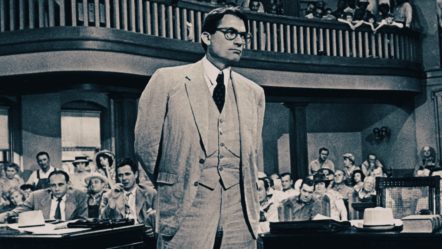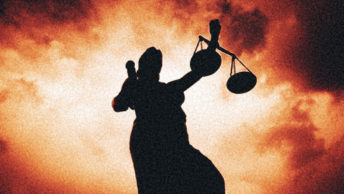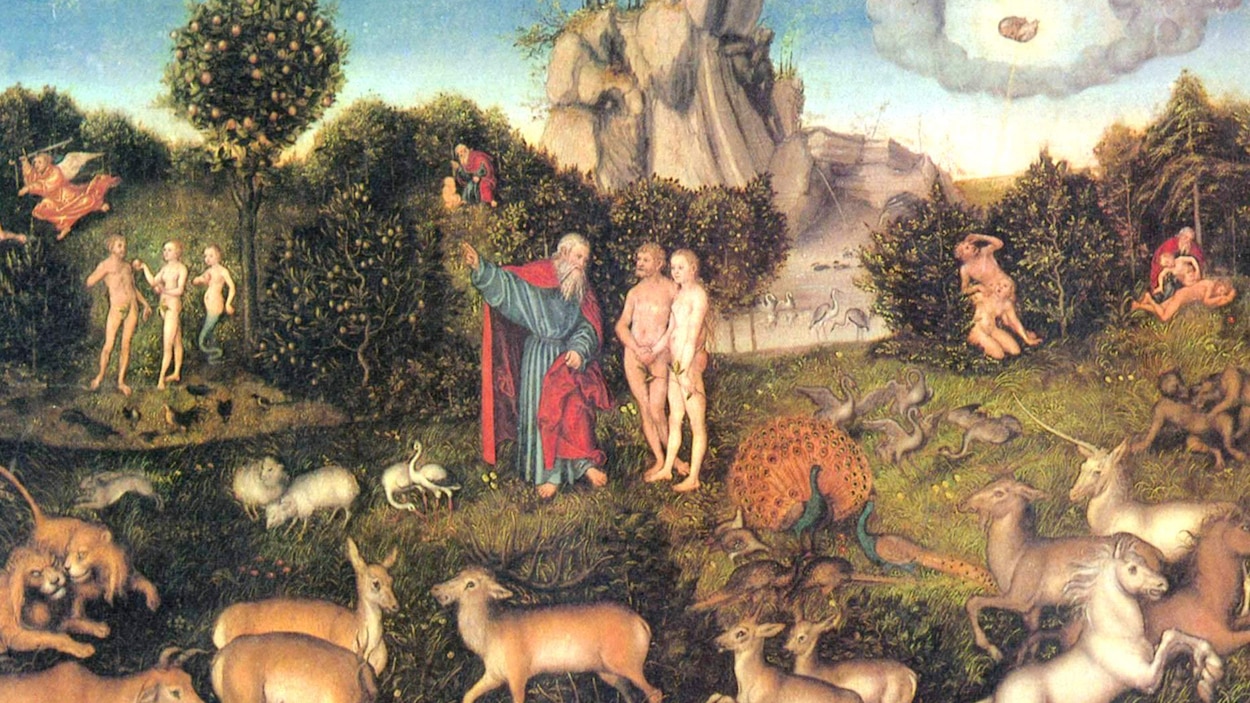Over seven years ago, on these pages, I broached the racial issues that were originally raised in Harper Lee’s blockbuster novel, To Kill a Mockingbird in 1960. These contentious issues were put in a differently-colored light in 2015 with the discovery and subsequent publication of her prequel just months before her death the following February. So much has happened in America’s racial relations since then, I think it not only fitting, but also imperative for me to revisit To Kill and expand on some of the themes she developed, which seem even more relevant in today’s milieu.
With the 55-year delayed release of her first book, Go Set a Watchman, the author, who died after its publication, just weeks before her 90th birthday, unleashed a torrent of social unrest and intellectual confusion that highlighted the turmoil that emerged on the streets of Ferguson and later with Black Lives Matters in Seattle and Portland in 2020.
As a work of literature, Go Set a Watchman stands in favorable contrast to her second book, To Kill a Mockingbird. I think Go Set is a book for thinking adults while her classic best-seller is more for children. The first is to the second as Shakespeare is to P. L. Travers of Mary Poppins fame.
This should not be surprise her serious readers. The narrator of To Kill is Scout a precocious seven-or eight-year-old tomboy. She saw life through the eyes of a child. She idolized her dad as a white knight in shining armor, perfect in every way. His brave defense of accused rapist, the one-armed Negro Tom Robinson, amidst the abject hatred of his fellow citizens in Maycomb, Alabama in the 1930s, made him even more of a hero in her eyes. This was also true for millions of adolescents and many adults, who have had the same iconic reverence for Atticus Finch ever since. These attributes were reinforced by the subsequent film, starring Gregory Peck in 1963.
That is why Go Set caused such a furor when it was released over five decades years later. It was if in the darkest corners of her soul, Ms. Lee and her publisher had conspired to undo over 50 years of liberal pride and energy. Go Set depicts Atticus, now disabled and in his early seventies, as the avatar of racism and white supremacy. He was now vilified as a racist with a hypocritical heart.
Go Set is arguably one of the best books I had read in a very long time for its social and historical awareness. It still gives clarity and voice to a large portion of this country that has been maligned for over a 100 years. Ms. Lee does not defend racial bigotry—a much more accurate and honest term than its bastard cousin, the politically charged racism. It explained how people could hold such prejudicial views within the context of their historical, social and cultural environs.
Their very use of the word racism, which did not exist until 1936, is deeply troubling. According to the Oxford Dictionary, it was first cited in a book by the American fascist, Lawrence Dennis, The Coming American Fascism.* The use of the word racism is a potent weapon of self-righteous indignation that the American Left has used for generations to silence debate and eliminate any criticism of their twisted social and racial policies. It is a personal affront, analogous to a loaded gun pointed at the heart of reasonable discussion. It signals that there is no other side of this issue that can even be mentioned in civilized company.
Go Set was truly a broadside across the bow of their Woke pride. Still the Left will more than likely, not open up a fair and honest discussion of these issues without rancor or violence. It is a perfect title for what transpires in the book. Lee chose it from Isaiah 21:6, which reads: Go Set a Watchman and listen to what he saith. As Atticus’ brother Dr. Jack Finch tells his niece Jean Louise (Scout’s Christian name) that the verse means to listen to your conscience or moral compass.
Scout’s conscience had been formed, first by the Socratic education and aura of intellectual freedom that Atticus promoted in his home. Her years as a young adult in New York City, the den of liberal change and moral decay, moved the hands on her inner compass like a magnet, so as to always point to the North (ideas). By contrast, Atticus’ Watchman came from a legal background that was wedded more to the moral virtues, not of the liberalism of the American Revolution, but more likely the conservatism of the United States Constitution and its Bill of Rights. The lesson for America here is that revolution can change the hands of power but only principle can govern.
During one of their introspective and heated discussions, they unveiled the keys to understanding Southern history. Atticus critiques the recent Supreme Court decision Brown v. Board of Education, Topeka Kansas (1954). This seminal decision legally sought to eliminate centuries of segregation in the South, starting with our schools. Unfortunately, his explanation will more than likely be unseen and unheard, as the United States plods more deeply into the 21st century in virtual blindness and ignorance of the deeper meaning of its past history.
This landmark decision was the proper moral course but unfortunately it violated the Bill of Rights, which made it a bad precedent and a divisive decision. It cavalierly dismissed the 10th Amendment, which nobody teaches or understands today. The late Kansas Senator Robert Dole and Republican candidate for the presidency in 1996 carried an index card of it in his pocket for many years.
Also known as the Reserved Powers Amendment, it stated that any power not specifically delegated to the Federal Government was reserved for the states. Education was one of the most important of these state powers. The Federal government had now taken it upon itself to tell all children to think as it does. While segregation was blatantly immoral, the proper way to have changed it was through the amendment process. But that takes time and Big Government likes swift action when it comes to absorbing more power and control.
Another point of note is the tremendous cultural and historical pride Southerners have. In the mid-19th century, they had witnessed their entire civilization swept from the chess board of history during four years of bloody war and 12 years of Deconstruction that made them third-class citizens in their native states. What was even worse was that the North forced their social acceptance of the South’s former slaves on them in such a self-righteous way, with the strong stench of partisan politics, that their only natural reaction was the toxicity of hatred and violence.
The Northern Republicans compounded their bungling of their Southern Occupation when they sacrificed three million blacks on the altar of political expediency, to secure the White House. This was accomplished through a corrupt bargain that is still unrivaled in American History. In 1872, the South ceded the necessary 20 electoral votes that put Republican Rutherford B. Hayes in the White House, instead of the more likely winner, New York Democrat, Samuel Tilden. The North kept its part of this unconscionable act by swiftly removing all Federal troops from the South. This left the bewildered and uneducated blacks at the less than tender mercies of the Klan and other hostile Southern bigots.
For several generations after that, the Northern hypocrites waved the Bloody Shirt of Secession, which blamed the South for the war and all of its collateral damage. Today the ideological heirs of these Radical Republicans, mostly denizens of the Left are hypocritically rattling the bloody chains of systemic slavery in the faces of millions of Americans.
The Brown decision was like a second Reconstruction and Atticus was not the problem, but tried to be part of a solution. With all the rhetorical and argumentative talents he could muster, he tried to guide his Alabama home and maybe the entire South in a soft landing, bolstered by their gradually accepting the demise of their common cultural heritage as the nation changed.
What Atticus resented most was not the simple black people he had lived with all of his life, who had suddenly erected barriers of emotional isolation from the white citizens of Maycomb, as his daughter painfully experiences, but the modern carpetbaggers from the North—the NAACP and its legion of eager lawyers, ready to force immediate and radical change on a people who spent their lives in languor and slow moving.
Atticus was never a racist! He decried the violent bigotry of the Klan and other hate groups but understood only too well what had made them that way. He was, in fact, more than a hero but a peacemaker. But he was also a legal, moral and social realist, who recognized as Abraham Lincoln had in his own times that blacks then were not his intellectual, social or even cultural equals.
His daughter was blind to this because as her Uncle Jack tells her, she lacked an understanding heart. She failed to see her dad’s basic humanity in being a human being of flesh and blood. All she could see was her own self-righteousness condemnation of him based on her progressive conscience, interested more in change, power and control. Her conscience had been tainted by the self-righteous promotion of the progressive ideas that emanated from the guillotines and mobs of Paris in the late 18th century. She blindly judged him and Alabama by a fallacious Presentism that failed to see mitigating…not exculpatory circumstances, that underscored the truth of a specific time, place and culture.
Her conscience had failed her while Atticus’ made him a three-dimensional human being, unlike the cardboard icon of her childhood. Her father was not perfect. He was hewn from the same twisted timber that all humans are. But his adherence to his conscience and his ability to admit that all were equal before the law made him unique for his community and his times.
As an adult Scout was liken to Thomas Paine, a pamphleteer for American Independence and later one of the ideologues of the French Revolution, who marched to the promptings of his inner drummer to To Make the World Anew. What he meant by this was to make human beings anew, that is without flaw, prejudice or humanity. This is the impossible dream that has failed, not only the Men from Paris, but also Moscow, Beijing, Havana or wherever man’s free will had been coerced into submission.
I find it easy to say that Harper Lee last word was a prescient book that is definitely one for the ages, especially ours. It speaks volumes against the main impulses of Wokeness. In many ways, many years after her death, Harper Lee is a prophet for our times. Through her book, she still speaks to all whose consciences have not been blinded by bigotry, hatred, ideology, selfishness or liberal philosophy.
Unfortunately, too many of the movers and shakers today labor every day to transform all Americans into Blind Watchmen, such as Jean Louise. My fear is that our country’s moral anchor has been rusted away from the ship of state by the moral and political corrosion of the French Revolution. America is drifting without leadership or purpose. Our lighthouses have gone dark. How long will it be before America becomes a nation of blind watchmen?
*In the thirties, calling your enemies fascists, usually meant that one was a Communist. Coincidentally, one of the five books under my Christmas tree, this past year is entitled, Fascism Comes to America, by Bruce Kuklick.








